Webinar Recording
Showing 1–12 of 69 results
-
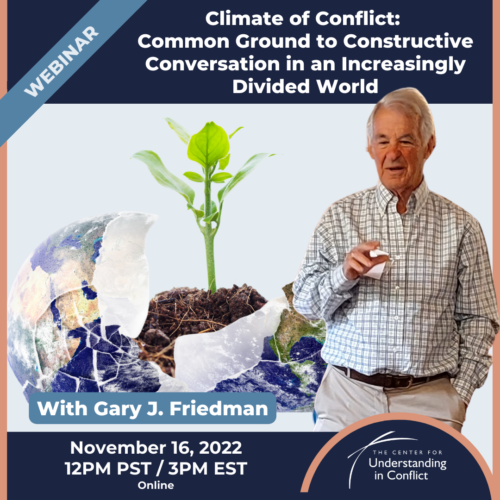
Climate of Conflict: Common Ground to Constructive Conversation in an Increasingly Divided World
It is natural to surround ourselves with like-minded people while avoiding the discomfort and tension that comes when we engage with those with beliefs and opinions contrary to ours. These […]
$37.00 -
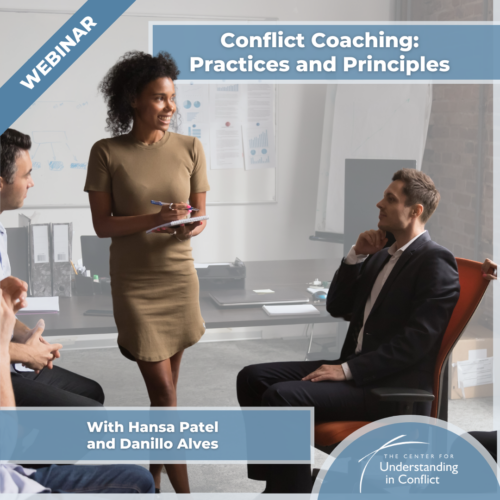
Conflict Coaching: Practices and Principles
Conflict coaching helps individuals, groups, and organizations manage and resolve conflicts effectively by empowering participants to address and navigate disputes constructively. Join Hansa Patel and Danillo Alves to learn principles […]
$37.00 -
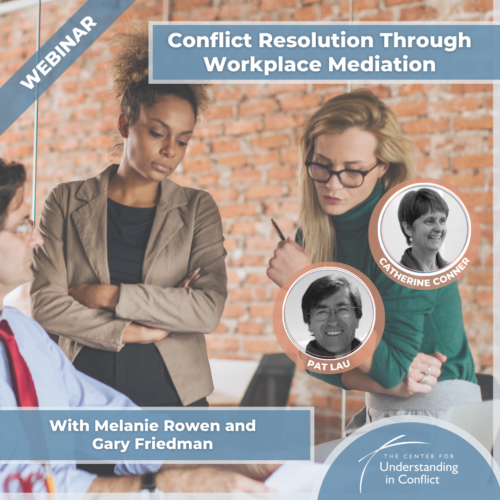
Conflict Resolution Through Workplace Mediation
Explore the transformative impact of integrating conflict resolution and mediation practices within your organization while fostering a culture of open communication, looping, and collaborative problem-solving to enhance employee morale, increase […]
$37.00 -

Disability Inclusion and Accessibility in Conflict Resolution
When we create a container for working with parties in conflict, how can we make sure we’re designing a process that is inclusive of and accessible to people with disabilities? […]
$37.00 -

Emotions Webinar
Many conflict professionals are compelled to present rationale arguments and strive to avoid too much emotion from permeating into the conflict resolution process. Yet, emotions are a necessary part of […]
$37.00 -
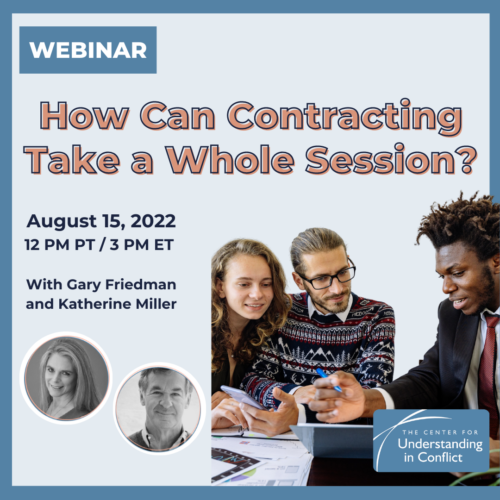
How Can Contracting Take a Whole Session?
Contracting is a crucial part of the mediation process and often overlooked or poorly addressed. Inexperienced mediators worry that the parties (and their attorneys) will be so keen to rush […]
$37.00 -
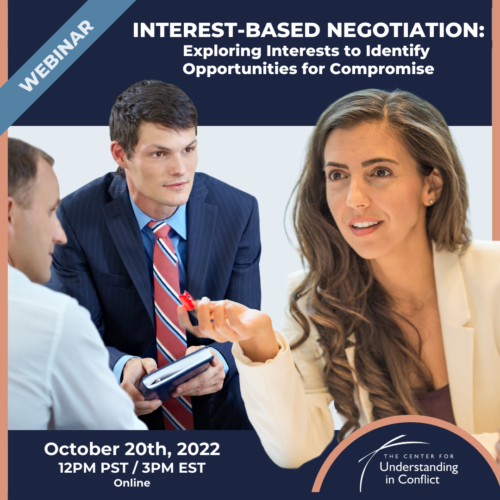
Interest-Based Negotiation: Exploring Interests to Identify Opportunities for Compromise
Interest-based negotiation is at the heart of leveraging the Understanding-Based Model to help those in conflict reach a mutually beneficial outcome. However, guiding people to look beyond their positions and […]
$37.00 -

Interfering Influencers—What to Do About Them?
One of the most challenging things that can come up in a conflict resolution process is when there are people outside the room negatively influencing the parties but not participating […]
$37.00 -
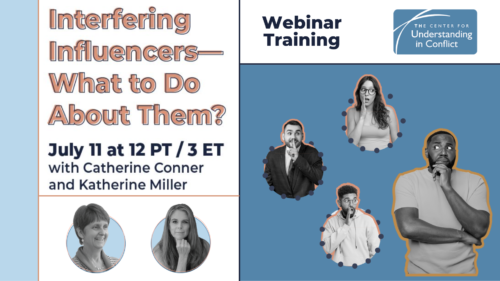
Interfering Influencers—What to Do About Them?
One of the most challenging things that can come up in a conflict resolution process is when there are people outside the room negatively influencing the parties but not participating […]
$37.00 -
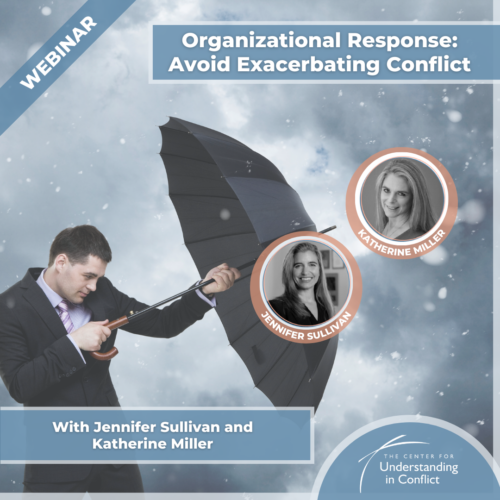
Organizational Response: Avoid Exacerbating Conflict
Delve into the critical importance of organizations adopting a measured and informed approach to conflict resolution, shed light on the detrimental consequences of mishandling conflicts, and highlight the value of […]
$37.00 -
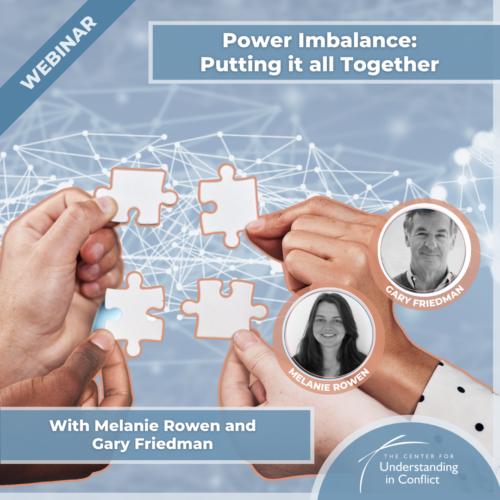
Power Imbalance: Putting it all Together
Power imbalances can skew the entire conflict resolution process in innumerable ways. During the Power Imbalance webinar series, we’ve looked closely at three different kinds of power imbalances: interpersonal styles, […]
$37.00 -
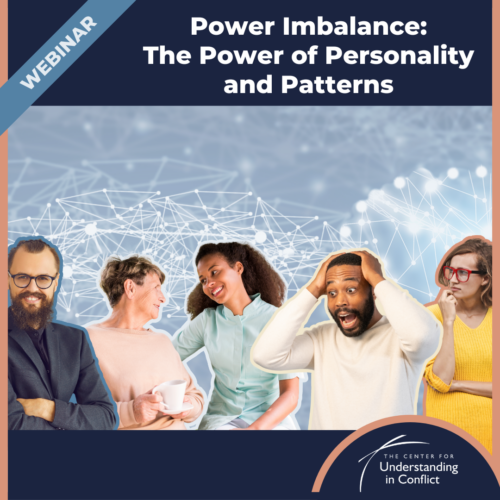
Power Imbalance: The Power of Personality and Patterns
Every individual who walks into a conflict resolution process brings their style, quirks and ways of relating to others. In pairs or groups, unique patterns of interaction develop. How can […]
$37.00
